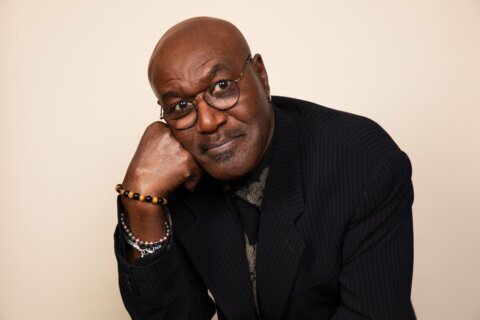The lens of journalism and the lens of film create double exposure for important issues.
Thus, the Double Exposure: Investigative Film Fest returns Wednesday through Sunday.
“Double Exposure is looking at the intersection of filmmaking and investigative journalism, recognizing that there’s this really poignant, exciting, creative space where filmmakers are increasingly taking on the work that has historically been contained in the realm of journalism, breaking stories and exposing corruption,” co-founder Sky Sitney told WTOP.
“We have some amazing films this year,” co-founder Diana Jean Schemo told WTOP. “It’s actually our biggest lineup yet. We have 30 feature and short films on the slate this year.”
The seventh-annual event is largely virtual again this year, except for in-person events on both opening and closing nights at the U.S. Naval Heritage Center in Washington, D.C.
“We’re using a wonderful platform called Eventive,” Sitney said. “Once the festival kicks off on Wednesday, Oct. 13, audiences can access the entirety of our film program, including prerecorded Q&As with the film directors and, in some cases, the subjects. … It is essentially on demand. … They have 48 hours to conclude [each] screening.”
The lineup kicks off with the opening night screening of “United States vs. Reality Winner.”
“She was the whistleblower who was the 25-year-old NSA contractor who exposed one document about Russian election interference and became the No. 1 leak target of the Trump administration,” Schemo said. “She will be participating in the post-screening conversation remotely. This is her first time speaking publicly since she was arrested.”
This year’s virtual centerpiece is the National Geographic film “Rescue” by Elizabeth Chai Vasarhelyi and Jimmy Chin, who won the Best Documentary Oscar for “Free Solo.”
“It’s looking at the rescue of 12 boys from a soccer team in Northern Thailand who got stuck in a flooded cave and the operation to rescue them,” Schemo said.
This year’s spotlight film is “Flee” by Danish filmmaker Jonas Poher Rasmussen.
“It tells the story of Amin Nawabi, a refugee from Afghanistan after the Soviet occupation,” Schemo said. “He’s now living in Denmark, telling the story of his family’s escape from Afghanistan. It’s animated but also spliced in with real footage. … It’s really an amazing film, very creative, revealing and touching. It’s one I would urge everybody to see.”
Another highlight of this year’s festival is the legal doc “Courtroom 3H.”
“It takes us inside a Tallahassee family court,” Sitney said. “We are situated within the confines of a family courtroom. … We see the devastation of issues that bring people to these spaces [and] some hopeful issues like adoptions. … It’s just a very interesting look at the intersection of how the judicial system weighs in on these intimate cases.”
You also don’t want to miss Stanley Nelson’s documentary “Attica.”
“Using a lot of footage uncovered from the prison uprising from 1971, it is just a really interesting revisiting of an event that a lot of people thought they knew … then you see this film and it really recasts the way you think of this particular uprising, what was at stake and what a pivotal moment it became in hindsight,” Schemo said. “It’s just a masterful film.”
Environmental activists will appreciate “Burning” by Eva Orner.
“It looks at climate change, particularly in Australia,” Schemo said. “Forests are burning, but she’s doing something interesting where she’s casting the fire itself almost as a character with its own nature, appetites and reactions to what happens. She covers the political side of this issue … but the locus is really on fire itself.”
Meanwhile, Matthew Heineman delivers the COVID-19 documentary “First Wave.”
“He has entered the ICU in New York City’s first wave of COVID and has embedded himself with front-line workers, health-care workers, particularly at the Long Island Jewish Medical Center in Queens over the first four months of COVID’s wave,” Sitney said. “You see from the front lines the incredible work being done, the fear, the anxiety, the tensions.”
It all culminates with the closing night screening of “Accepted” on Saturday.
“It’s a really moving film about high-school seniors in a Louisiana charter school … that has a remarkable track record of sending nearly all of its graduates to elite universities like Stanford, Harvard and Princeton,” Sitney said. “The students work tirelessly and they have an impassioned leader, but something begins to register as suspicious.”
In the end, the festival is about holding our institutions accountable.
“We are all aware that investigative journalism is an engine of democracy, of an informed citizenry, and without it, you can’t really have people holding government accountable,” Schemo said. “We try to remind people that it is also an engine of culture. So much of what we consume as audiences comes from investigative journalism.”
Listen to our full conversation here.








